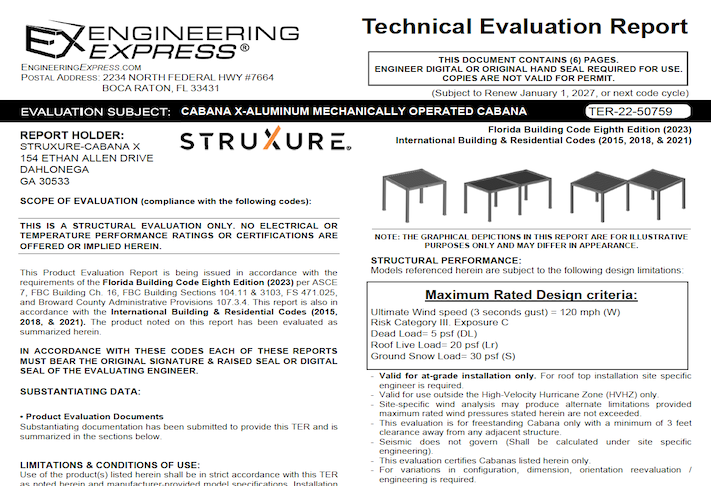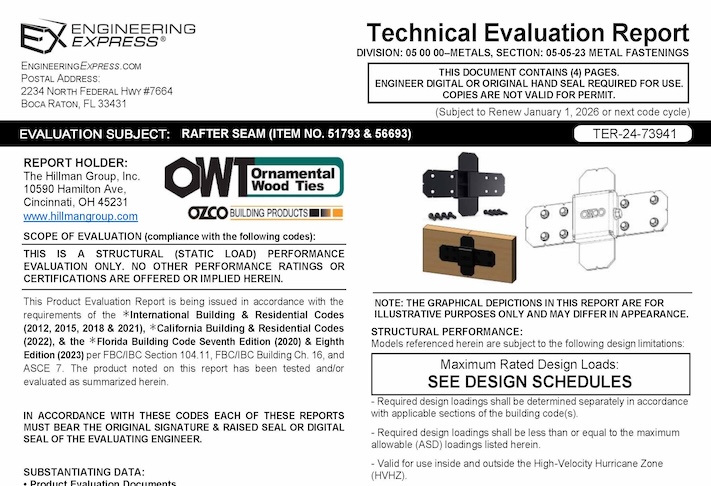TER - Technical Evaluation Report Explained
A TER or Technical Evaluation Report, is an engineering evaluation based on testing and/or rational analysis for the performance of a building product or component. In the case of Engineering Express, we are evaluating the structural aspects of a product only.
The authority for a qualified engineer to create a technical evaluation report is given in both the International and Florida Building Codes by an approved source (section 2.2). Numerous other codes are utilized in the creation of a TER which are listed on each corresponding evaluation report.
Why TERs Matter in Permitting
- Limited product categories require approvals in Florida. Only eight building product categories need official product evaluations.
- TERs fill the gap. For everything else, TERs are a code-compliant method for showing product performance.
- Local flexibility. TERs can be applied under the Local Product Approval process for site-specific projects.
- Nationwide acceptance. Beyond Florida, TERs are recognized by the International Building Code (IBC) as valid evaluation reports.
Important
Example
A TER may show a beam can carry 10,000 lbs. Whether that beam is suitable for a specific building depends on the design plans and local conditions.
ICC & Florida Building Product Certification Requirements
The International Building Code (IBC) governs product approvals through:
Florida Administrative Code 61G15-36 defines Product Evaluation Documents as:
Product Evaluation Documents. Engineering documents that define procedures, materials, devices, fabrication, and methods of construction and installation of a product, or standardized group of products, through product evaluation or rational analysis, with the objective of obtaining approval from the authority having jurisdiction of that product for installation. Product evaluation documents shall be generic and do not include documents prepared for a site specific project.
These codes let officials approve innovative products when supported by engineering analysis. The Florida Building Code (2023 FBC) reinforces this through FBC 104.11 and 1703 (Approvals), giving engineers a clear path to demonstrate compliance.
Why An Original Engineer Seal Is Required on Technical Evaluation Reports
Since these evaluation documents are not issued by an accredited evaluation entity such as ICC or Miami Dade Product Control, among others, each document must bear the original signature and raised seal of the evaluating professional engineer.
For guidance with your next project, explore our Plans, Calculators, Knowledge Base,
or contact us directly for site-specific support
Last Update: October 2, 2025
Related Knowledge Base Posts -
- Should a professional utilize the ASD (Allowable Stress Design) method or the LRFD (Load Resistance Factored Design) method when calculating the required wind pressure for use with tested-approved systems?
- What are the requirements for using ASTM Missile Level E in Florida and the US?
- How do I calculate the effective opening area on window or door products? – What opening area should be used for wind pressure determination on a multi-panel product?
- Can an engineer design alternate anchorage for a Florida product approval or other product evaluation?
- What Doesn’t A Technical Evaluation Report (TER) or Product Evaluation Do?
- How do I get a Certified TER or Master Plan Sheet?

